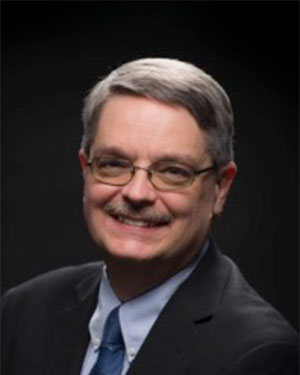Letter from the Chair
 If you have even a modicum of interest in following the news, you can’t help but come away with the impression that science is under assault. Climate change deniers, anti-vaxxers, and…god forbid…even Flat Earthers, get prominent coverage in highly visible media outlets.
If you have even a modicum of interest in following the news, you can’t help but come away with the impression that science is under assault. Climate change deniers, anti-vaxxers, and…god forbid…even Flat Earthers, get prominent coverage in highly visible media outlets.
So, what’s a good scientist to do? Should you turn inwards towards your fascinating research? Or should you try to engage the public, either by debating science deniers or just spend time talking positively about science in general?
Actually, each of us must answer that question for ourselves, but—given that you’re reading this—the odds are that you lean more on the engagement side of the spectrum. And perhaps you’re looking for some advice on how to get involved. One way to learn some of the tricks of the trade or just network is to attend the March or April meeting of the American Physical Society, where physicists with an established record of science outreach will be there to share ideas.
The Forum on Outreach & Engaging the Public (FOEP) was formed in 2010 to bring together physicists who are passionate about disseminating knowledge of physics to the general public. We want to ensure that our friends and neighbors are aware of both the ways in which the world around us is governed by physical principles and also of the most interesting and cutting edge physics research. While there are perennial science topics, some have an ebb and flow.
So, what does 2019 bring? Sadly for a nation weary of politics, it brings the start of the 2020 Presidential election. Putting aside any of our individual partisan affiliations, organizations like FOEP and our sister forum Physics and Society (FPS), should work to ensure that public debate on issues with science underpinnings is based on sound scientific principles and data.
If you’re not willing to wade into the world of science and society, there are other ways you can connect with the public. FOEP has lined up an exciting slate of invited speakers at both the March and April meetings.
In March, we will hear from Sean Carroll of Caltech, who will be talking about podcasting. Ben Wiehe of MIT will talk about getting involved in Science Festivals. Allison Eck, Digital Editor of the television show NOVA, will be talking about social media and writing for visible websites like hers. Chad Orzel, of Union College and author of How to Teach Quantum Physics to your Dog, will talk about how to write a successful book for the public. Finally, Professor Ray Jayawardhana, winner of the 2019 Nicholson Award for his highly successful outreach efforts, will give a lecture entitled “Tough crowd: Reaching beyond the usual science-interested audiences.” And, of course, all of them will be available to chat about things beyond their specific lectures. They are all great people to learn from.
In addition, the March Meeting will bring an invited talk by Paula Apsell, senior executive producer of the television show NOVA and recent lifetime Emmy award winner for her science journalism. She will be both giving advice and sharing anecdotes about her experience with over three decades of high visibility science communication.
Science isn’t just about learning, it can also be fun. FOEP is sponsoring a science-themed escape room for the March meeting. People can try their wits and science acumen in the escape room designed by Paul Kwiat of the University of Illinois. Will you get the fastest time?
And no March Meeting would be complete without attending the annual FOEP Happy Hour on Tuesday. There you can mingle with other people interested in physics outreach, with conversations lubricated by an adult beverage or two. It’s always great fun.
For the April meeting, Chad Orzel will reprise his presentation on his experiences publishing a book. In addition, we will hear from Clifford Johnson from USC and author of the graphic novel The Dialogues: Conversations about the Nature of the Universe, on his experiences with science publication. And finally, we will hear from Elyse Aurbach of the University of Michigan on creating and hosting a successful Science Café. These all promise to be fascinating talks by scientists with an accomplished outreach record.
If you can’t make one of the meetings, there are other things you can do. You can always contact me directly if you want ideas or direction. I may not have the answer, but I’ll find one for you. Or you could reach out to others on the FOEP executive committee, all of whom have different areas of expertise in physics outreach.
I am writing this in the first few days of January. You will be reading it later than that. But, either way, I hope you will make a resolution to do a little more to help the public learn more about physics. Give a public talk.
Start a Science Café. Add fun physics demos to an open house. Write that book you always wanted to write. Start a blog. Make YouTube videos. Write a letter to the editor. Run for office, if you have the stamina for it. Write an article for a public magazine or pen an Op-Ed. Chat with your neighbors, friends, and family. Contact your local public radio. Visit a local school or kindergarten. In short, physics is far too much fun to keep it to yourself. Share it far and wide!
Don Lincoln
